COVID-19

CBC Agenda, Black Appellate Judges & 230 Reform: Feb. 10 Joint Center Roundup
Biden Administration
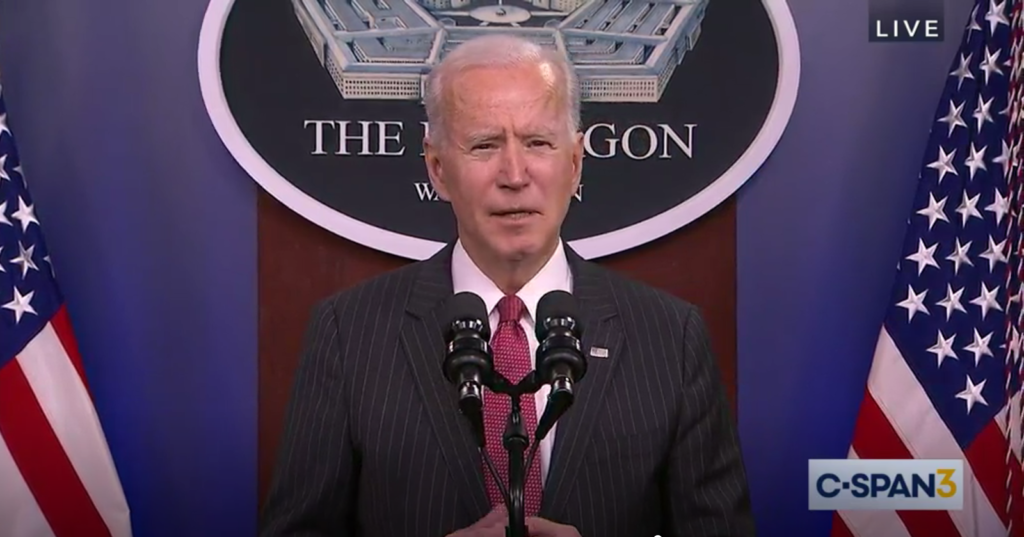
President Biden pays tribute to Black service members: President Biden visited the Pentagon for the first time since taking office and spoke about the significance of Black service members throughout history who served the United States while the struggle for civil rights at home is continuing, and the first Black Secretary of Defense, Lloyd Austin.
Yellen on stimulus and Black communities: Treasury Secretary Janet Yellen confirms that the COVID-19 pandemic negatively affected African Americans the most in a virtual meeting with Vice President Kamala Harris and members of Black Chambers of Commerce.
Priorities for Black women: National Coalition on Black Civic Participation CEO Melanie Campbell shares a list of Black women’s priorities for President Biden in his first 100 days including having “seats at the tables of governance and to have our policy concerns addressed and acted upon in concrete, substantive ways.”
Black farmers remain skeptical of Vilsack at Agriculture: Several Black farmers are leery of President Biden’s nominee Tom Vilsack assuming the role of Secretary of Agriculture again. National Black Farmers Association President John Boyd Jr. said if confirmed, Vilsack will have “to do better this time” (Vilsack also served in the position in the Obama Administration). If confirmed by the Senate, Vilsack said he would “root out generations of systemic racism” and that he will “do everything [he] can to remove the barriers” that prevent Black farmers from getting access to programs. Black farmers also called for President Biden to “sign an executive order they drafted halting foreclosures on Black-owned farms and making other civil rights reforms.” Vilsack also told The Washington Post that he “convened a videoconference with nine prominent civil rights activists and advocates for Black farmers.” Civil Eats published a commentary analyzing whether Biden’s Food and Agriculture appointees can “live up to his promises on racial justice.”
The Hill
House wants minimum wage increase in stimulus: House committees met Wednesday to discuss the details of President Biden’s stimulus package. The New York Times reports that House leaders “hope to finalize the entire package” this week in hopes to have President Biden sign the $1.9 trillion plan before unemployment benefits “begin to lapse in mid-March.” The House bill will include increasing the federal minimum wage from $7.25 to $15 per hour. As of 2018, African Americans, who are 13 percent of the U.S. population, comprised 26 percent of workers who earned a minimum wage.
Congressional Black Caucus to push an aggressive agenda: The CBC plan “targets a trio of the biggest issues most salient to Black Americans: accessible health care, economic stability, and racial justice.” The agenda will be outlined in the CBC’s forthcoming “100 Day Plan.” Several CBC Members also spoke to Politico about their plan to improve the socioeconomic status of Black communities under the Biden administration.
Underwood, Adams, and Booker protect maternal health: Congresswoman Lauren Underwood (D-IL) and Congresswoman Alma Adams (D-NC) (who co-chair the House’s Black Maternal Health Caucus), and Senator Cory Booker (D-NJ) introduced an omnibus bill entitled Black Maternal Health Momnibus Act of 2021. The bill is “aimed at combating the significant health inequities that Black mothers face across the country.” The Center for Disease Control reports that Black and American Indian/Alaska Native women are two to three times more likely to die from a pregnancy-related cause than white women.
Stop deporting planes full of Black people: Members of the Congressional Black Caucus sent a letter to new Homeland Security Secretary Alejandro Mayorkas expressing their “grave concern about a recent string of mass deportation flights of Black people to Haiti over the last week” that are in “defiance of President Biden’s moratorium on deportations.” Congressman Mondaire Jones (D-NY), Congresswoman Ilhan Omar (D-MN), Congresswoman Ayanna Pressley (D-MA), Congresswoman Yvette Clarke (D-NY), and Congressman Ritchie Torres (D-NY) are among the signatories on the letter.
House Impeachment Managers Stacey Plaskett & Joe Neguse make history: As the impeachment process for Donald Trump proceeds, House Impeachment Managers Congresswoman Stacey Plaskett (D-VI) and Congressman Joe Neguse are making history as the first manager of a presidential impeachment from a U.S. territory and the youngest lawmaker to serve as an Impeachment Manager, respectively.
Appointments
Biden should prioritize Black appointments to the U.S. Court of Appeals: African Americans account for 13 percent of the U.S. population, but only 10 percent of active U.S. Appellate judges. This number could drop quickly since Black U.S. Appellate judges are disproportionately eligible to retire, and many of them have been waiting for a Democratic president and U.S. Senate to retire. If all Black U.S. Appellate judges eligible to retire did so tomorrow (all of them were originally nominated by Democratic presidents), only 5 percent of active U.S. Appellate judges would be African American. Joint Center President Spencer Overton details the issue in this post.
Biden initial cabinet more diverse than cabinets of Trump and Obama: NPR reports that President Biden has appointed five African Americans to his initial cabinet (not including Vice President Harris), compared to four Black appointments by Obama and one by Trump.
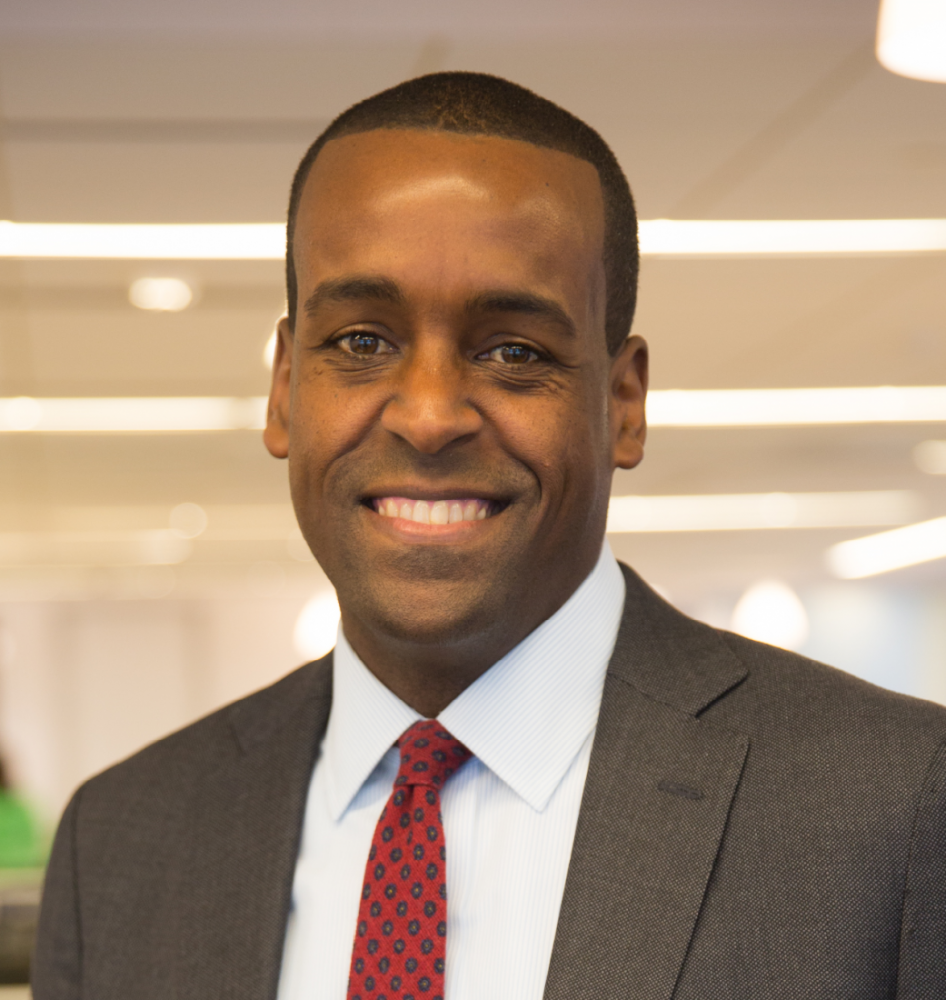
Biden appoints Adam Hodge as Assistant U.S. Trade Representative for Media and Public Relations. Adam Hodge recently served as the Senior Vice President for External Affairs at Ariel Investments. He has previously served as the Deputy Assistant Secretary for Public Affairs at the U.S. Department of Treasury during the Obama-Biden Administration; and as Press Secretary for House Majority Whip James Clyburn, on the House Oversight and Government Reform Committee.
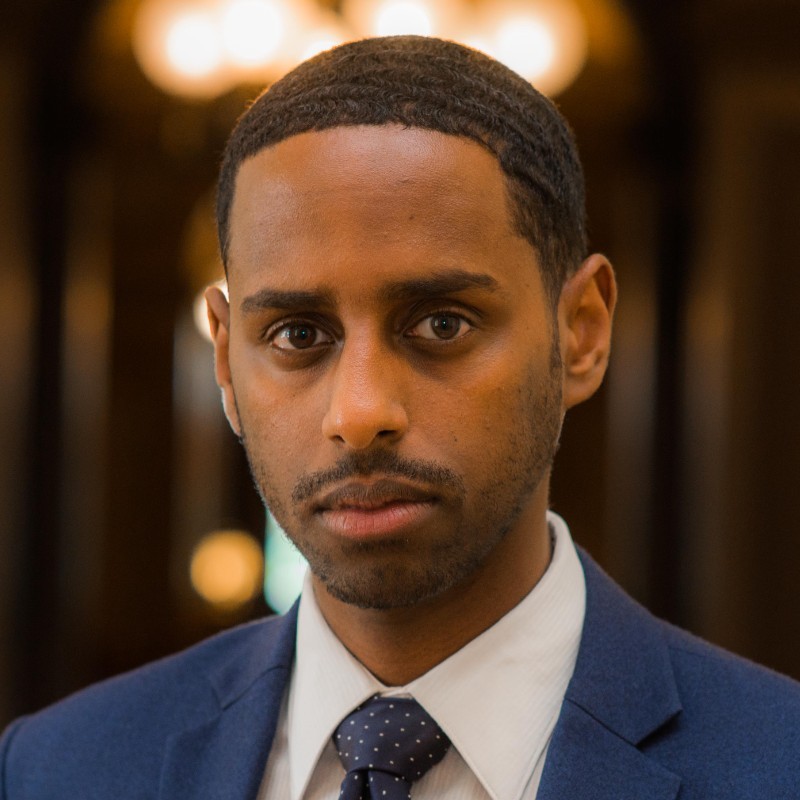
Biden appoints Samuel Negatu as the Director of Congressional Affairs in the Office of the U.S. Trade Representative. Samuel Negatu has served the last six years in the House of Representatives, most recently as the Legislative Director for Representative Jimmy Gomez (D-CA). He also served as a staff negotiator for the U.S.-Mexico-Canada (USMCA) working group, addressing labor issues in negotiation between USTR and House Democrats.
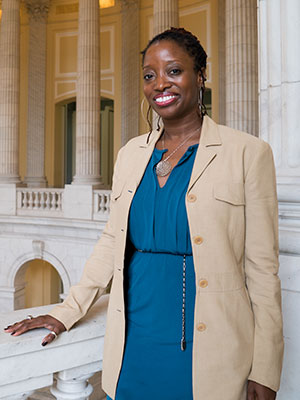
Biden appoints Jamila Thompson as a senior advisor to the U.S. Trade Representative. She is a 19-year veteran of Capitol Hill, previously serving as the Chief of Staff for Georgia’s Fifth Congressional District, deputy chief of staff for the U.S. Representative John Lewis (D-GA), a legislative assistant for Representative Barbara Lee (D-CA), and a volunteer coordinator and translator for various non-profit organizations.
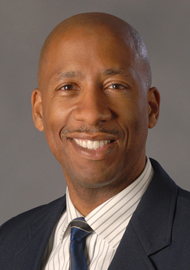
Biden appoints Carlton Waterhouse as Deputy Assistant Administrator for Land and Emergency Management at the Environmental Protection Agency. Carlton Waterhouse began his career at the EPA as an attorney in the Office of Regional Counsel in Atlanta, Georgia and the Office of General Counsel in Washington D.C. He has worked on several significant cases and as a national and regional expert on environmental justice.
Economic Policy
Fix the racial wealth gap: CNBC breaks down President Biden’s plan to fix the racial wealth gap including making the federal minimum wage $15 per hour, pledging a $2 trillion “accelerated investment to create jobs to build modern, sustainable infrastructure in Black and Brown communities,” advocating for student loan forgiveness, and more.
Policies designed for all women are not tailored to job loss among Latina and Black women: Black and Latina women had the highest job loss in January (the unemployment rate was 8.5 percent for Black women, 8.8 percent for Latina women, and 5.1 percent for white women). Two professors call for policies tailored to help women of color (e.g., moratoria on evictions, foreclosures, and student loan payments, strengthening of Medicaid and the Affordable Care Act, a national job corps). Joint Center Vice President Jessica Fulton explained similar trends seen in the December 2020 jobs data.
Unemployment remains high: The January 30 initial weekly unemployment claims totaled 779,000, the lowest since November but still higher than the pre-pandemic record high of 695,000 set in 1982. Including the additional 349,000 Pandemic Unemployment Assistance (PUA) claims, the total unemployed remains above 1.1 million.
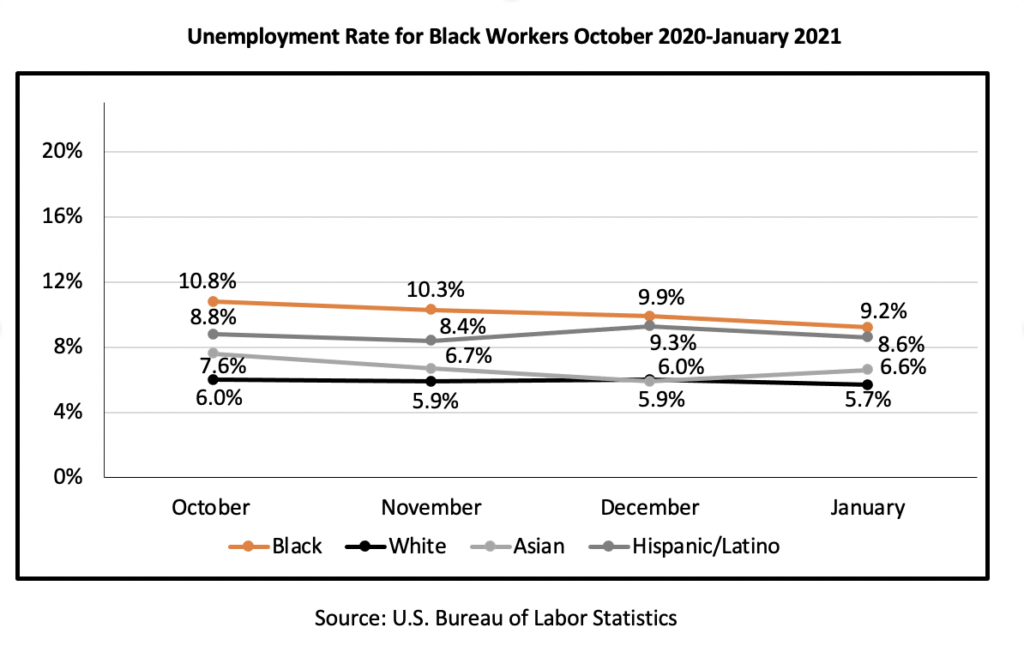
Black unemployment still high: The January overall unemployment rate fell to 6.3 percent, though rates differed significantly by race-ethnicity. Unemployment rates were 9.2 percent for Blacks, 8.6 percent for Latina/os, 6.6 percent for Asians, and 5.7 percent for whites. For Black men, the unemployment rate declined from 10.4 percent in December 2020 to 9.4 percent in January 2021. For Black women, the unemployment rate increased from 8.4 percent to 8.5 percent over the same period.
Black women’s work after work: When tallying women’s uncompensated work, don’t forget Black women’s community activism, argues economist Nina Banks. Her recent paper, published in The Review of Black Political Economy, establishes a framework for understanding that “the community is an important site where racialized women perform unpaid, nonmarket collective work to improve the welfare of community members and address community needs not met by the public and private sectors.”
Don’t overlook Black men either: New research documents the extent of Black men’s family caregiving, dispelling the myth of the “absent father.”
Federal Reserve lacks Black economists: Why are there only two Black economists out of 417 at the Federal Reserve Board of Governors in Washington? Black people make up 13 percent of the U.S. population and 3 to 4 percent of U.S. citizens and permanent residents who graduate as Ph.D. economists, but only 1.3 percent of economists across the entire Federal Reserve System.
Biden closing the wealth gap: President Biden signed four executive orders to help close the wealth gap between Black and white families. In 2019, a typical white family had eight times the wealth ($188,200) as a Black family ($24,100), according to the Fed.
Microloans gain ground: Leading community-based financiers discussed microloans and how the creation of the Entrepreneur Backed Assets (EBA) fund will strengthen community development financial institution’s (CDFIs) ability to help small business owners of color.
PPP will cast wider net: The new head of the Small Business Administration promises an equitable distribution of Paycheck Protection Program funds and other SBA funding sources to minority-owned businesses and underserved communities.
Tech Policy
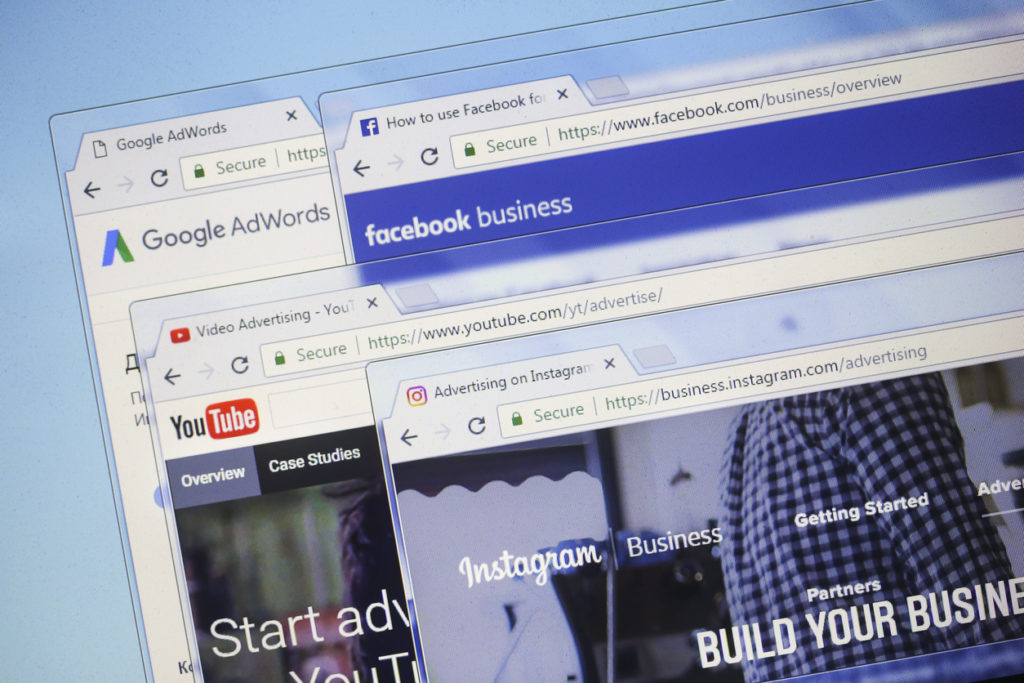
Joint Center proposal centerpiece of Senate proposal to reform Section 230 and protect civil rights in tech: U.S. Senators Mark R. Warner (D-VA), Mazie Hirono (D-HI), and Amy Klobuchar (D-MN) announced the Safeguarding Against Fraud, Exploitation, Threats, Extremism and Consumer Harms (SAFE TECH) Act, which seeks to reform Section 230. The centerpiece of the bill includes a solution proposed in the Joint Center law review article State Power to Regulate Social Media Companies to Prevent Voter Suppression (pages 1827-28), which calls on Congress to make clear that Section 230 does not provide a defense to civil rights claims arising from online ad targeting. In response to the draft legislation, Joint Center President Spencer Overton stated that the “bill makes it clear that Section 230 does not give platforms a free pass to violate civil rights laws, while also preserving the power of platforms to remove harmful disinformation.” The Senate bill comes after Congresswoman Yvette D. Clarke (D-NY) called for public comment on the draft of her upcoming bill, the Civil Rights Modernization Act of 2021, which also includes the solution proposed in the Joint Center law review article.
Hate is not a First Amendment right: An activist and digital rights advocate, Malkia Devich-Cyril, cites the removal of white supremacists from social media platforms not as an act of censorship, but an act of accountability necessary to protect the speech and freedoms of Black Americans.
Future of Work & Learning
Help finishing that degree: Morehouse University is expanding an online program for adult learners to help Black men with some college credits complete their degree. Nationally, more than 3 million Black men have no degree despite earning college credits.
Route into tech jobs disappears: COVID-19 has made it even more difficult for Black people to land jobs in the tech industry as entry-level positions disappear. Only 5 percent of software engineers and developers are Black.
Using tech to find better jobs: Jobs for the Future calls for leveraging technology to mitigate the disproportionate impact of automation, COVID-19 layoffs, and other trends on African American workers and other people of color
Undoing inequality by funding HBCUs: Pennsylvania State University Associate Professor Crystal R. Sanders published Washington Post commentary calling for President Biden to “undo years of education inequality” by improving access to higher education and increasing funding to HBCUs.
COVID-19

White House to make vaccines available in more Black communities: As Black people continue to be the most negatively affected by the COVID-19 pandemic, Dr. Marcella Nunez-Smith, who’s leading the Biden Administration’s COVID-19 equity task force, said the administration is launching a program to “send about one million vaccines a week to pharmacies that initially will be selected based on proximity to minority and underserved communities.” (See also NPR and Wall Street Journal).
Devastating grief: The risk for Black people of prolonged grief rises with the growing death toll from the pandemic. Black Americans are 2.1 times more likely to die of COVID-19 than white Americans, after accounting for age.
Vaccination resistance remains high: Academic medical institutions and schools of public health, including HBCUs, are playing leading roles in addressing resistance to COVID-19 vaccinations in Black communities. Black Americans are 1.4 times more likely than white Americans to contract COVID-19, 3.7 times more likely to be hospitalized, and 2.8 times more likely to die from COVID-19. However, Black people (35 percent) are still far less likely than whites (53 percent) to want to get vaccinated “as soon as possible.”
Younger people are biggest skeptics: Vaccine skepticism is more pronounced among younger Black people. Among those aged 18-44, 41 percent say they will not get vaccinated compared to 68 percent Black people age 60 and older.
Vaccination rollout misses many: Vaccination rates among Black people are significantly lower than their share of the population. In North Carolina, for example, Black people are 22 percent of the population and 26 percent of health care workers but only 11 percent of those vaccinated. Similar gaps exist in New York City.
Schools must gain parents’ trust: To fully reopen, schools must gain the trust of Black parents that school is safe for their children. Last summer, only 46 percent of Black parents agreed that schools should reopen in the fall, compared to 62 percent of white parents.
Wealth gap will slow recovery: Boston is concerned that the health and economic impact of COVID-19 will linger longer in Black communities given the deep racial wealth gap. A 2015 study found that nonimmigrant Black Bostonians held $8 in household net worth compared to $247,500 for white households.
Black LGBTQ communities need COVID-19 support: More targeted government assistance is needed for Black LGBTQ communities coping with COVID-19, says the Center for American Progress. Nearly three in ten Black LGBTQ individuals have postponed or avoided needed medical care due to cost, and 14 percent have postponed or avoided health care due to discrimination.
Policies to advance opportunity: Experts offer a policy agenda for Black Americans affected by COVID-19 and systemic racism. The proposals during the Brookings forum ranged from police and criminal justice reform to expanding access to health care, housing, and jobs.
Hill Diversity
Joint Center report card on top staff diversity of newly-elected Members: As of February 10, the Joint Center’s report card tracking top staff hires by each new Member in the 117th Congress illustrates that 196 of 213 (or 92.0 percent) of the possible positions have already been filled. Of Members who have hired all three top spots, so far Senator Alex Padilla (D-CA) leads in the Senate and Congresswoman Marilyn Strickland (D-WA) leads in the House. Those at the bottom of the lists are Senator Mark Kelly (D-AZ) and Congressman Troy Nehls (R-TX). Of the top staff hired by new Members so far, 24.5 percent are people of color, and 5.6 percent are African American. People of color account for 40 percent of the U.S. population and African Americans account for 13.4 percent of the U.S.
Joint Center push for bipartisan Senate Diversity and Inclusion Office: The Joint Center organized a letter signed by over 35 civil rights groups addressed to Majority Leader Schumer urging his office to establish a bipartisan Senate Diversity and Inclusion Office. In the letter, we recommend the new bipartisan Senate Diversity and Inclusion Office be staffed by professionals with expertise in diversity who support both Democratic and Republican Members in identifying, recruiting, hiring, retaining, and promoting diverse talent. The Senate Office should also collect demographic data of staff, and analyze, disclose, and disaggregate the data by position and other factors.
New LegiStorm report shows new House Members hire more diverse staff: According to LegiStorm data, 47 percent of newly-elected Democratic House Members’ staffers are people of color, compared to 35 percent of all Democratic House staffers. Among newly-elected Republican House Members, 11 percent of staffers are nonwhite, compared to 8 percent of all Republican House staffers. Data collected by the Joint Center shows this trend extends to top staff positions. Read Joint Center Senior Fellow of Diversity and Inclusion Dr. LaShonda Brenson’s analysis of LegiStorm’s latest numbers here.
Movement Building
Color of Change issues a petition to support Congresswoman Cori Bush’s (D-MO) new bill to investigate and expel members of Congress who supported Trump’s attempt to overturn the election.
National Urban League’s Entrepreneurship Centers and the U.S. Hispanic Chamber of Commerce partner with the ODP Corporation to launch Elevate Together, a nonprofit “designed to address systemic discrimination and historical racial disparities in business growth and profitability in Black and Hispanic communities.”

The African American Policy Forum announces a new series, The Facts To Know About the Status of Black Women as We Enter the Biden Years, a visual account of the “intersectional difficulties faced by Black women and girls in America today.”
The NAACP Legal and Defense Educational Fund, Inc., reflect on the struggles and victories of the African diaspora through a series of photos and essays for Black History Month.
The Poor People’s Campaign, One Fair Wage, and service industry workers host a National Day of Action in Chicago, Denver, New York City, Phoenix, San Francisco, and Washington, DC to support the Raise the Wage Act. If passed, it would raise the federal minimum wage to $15 per hour by June 2025.
Events
Upcoming events include “Roundtable on Emergency Broadband Benefit Program” (Federal Communications Commission, February 12); “Rethinking workforce development: Policies to protect workers and families” (Brookings Institution, February 16); “How 2020 Changed the Way Americans View Higher Education” (Third Way; February 16); “The Role of Race, Labor Markets, and Education in Building an Equitable Recovery” (WorkRise, February 17); “How Impact Investors Can Use Policy Advocacy and Engagement to Advance the Common Good” (Urban Institute, February 18).
Last week, events were held by Brookings Institution, Politico, and the Urban-Brookings Tax Policy Center.
Podcasts
Podcast Playlist: Black History Month (Aspen Institute)
Working Towards Tomorrow (XPRIZE)
The Joint Center thanks the Annie E. Casey Foundation, the Boulé Foundation, the Democracy Fund, Toyota Motor North America, Inc., UPS, and the Walmart Foundation for additional support that has allowed us to do some of our COVID-19 and Black Communities work.
To receive the Joint Center’s emails, sign-up here.

